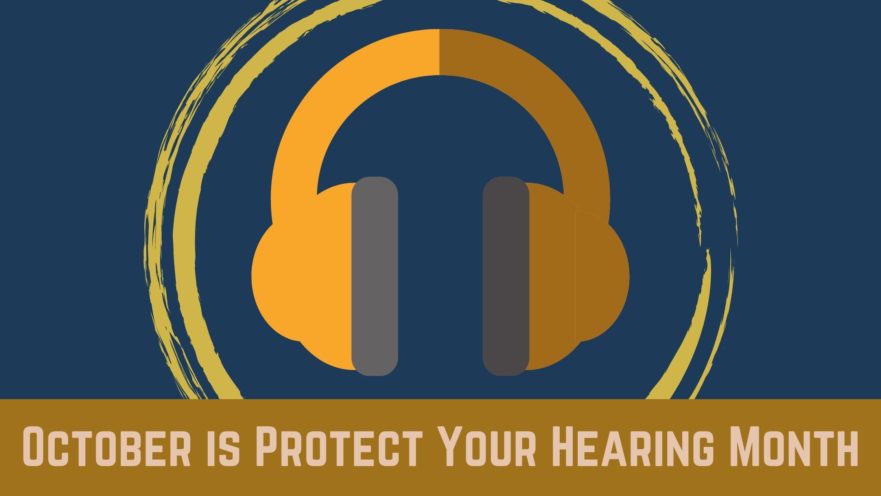- Custom vs. Over-the-Counter Hearing Aids: Finding the Right Fit for Your Ears - April 10, 2024
- Real Stories, Real Triumphs: Cochlear Implants Make All the Difference - March 15, 2024
- Common Misconceptions About Hearing Aids - February 14, 2024
Many people over the age of 65 begin to see a decline in their hearing health due to the natural process of aging. It’s not an insignificant number — by the time you reach 65 years of age, about one-third of your peers will experience hearing loss. That number climbs exponentially higher as we age so that by the time we are in our 80’s, about half of people in our demographic have hearing loss. There’s not much we can do about the effects of time on our sense of hearing, or at least until medical science reaches a breakthrough.
But the second leading cause of acquired hearing loss is exposure to dangerous levels of noise. And there are steps we can take to minimize the volumes we’re exposed to. October is Protect Your Hearing month, and it’s the perfect time to learn about the everyday dangers to our hearing and enact a personal plan to stay safe.
How sound can harm hearing
Our ears are surely the stars of the show when it comes to hearing, but a lot of what makes hearing possible isn’t visible to the naked eye. The delicate cells of the inner ear collect sound and then transmit it to the brain via the auditory nerve. These cells are integral to picking up all of the noise occurring all around us. They are non-regenerative cells, which means they will not repair themselves when they deteriorate over time, nor do they repopulate. The amount we are born with is the number we get throughout a lifetime.
Too-loud noise can also cause damage to these cells. It can cause the cells to overwork, damaging the membrane or the cell itself. We call this condition noise-induced hearing loss.
How loud is too loud?
It is generally agreed upon that anything over 85 decibels — the unit for sound measurement — is potentially harmful to your ears. The Occupational Health and Safety Administration (OSHA) has strict guidelines on how much noise over 85 decibels workers can be exposed to keep them safe from noise-induced hearing loss. If workers must be in conditions with noise over 85 decibels, safety interventions like hearing protection, breaks, and physical buffers must be put into place.
You can begin to guess at the decibels around you, considering that normal conversation comes in at about 60 decibels and a lawnmower is around 90 decibels. You might even notice that around loud sounds you become anxious to get away or turn them off — this is your body activating an ancient warning system that your environment is too loud.
Now that everyone has a supercomputer in their pocket, you could use your smartphone to measure the actual decibels of your environment. Download an app and experiment with the everyday sounds of your life to make sure they’re not typically exceeding 85 decibels. Remember, experts, warn that you should not expose your unprotected ears to sounds above 100 decibels for longer than fifteen minutes before you begin to incur a noise-induced hearing loss.
Take steps toward healthier hearing
We can help you find the right hearing protection if you engage in loud recreational activities like motorcycling, jet skiing, or shooting. You might be a live music aficionado who is ready to invest in custom earplugs, now that you know rock concerts often reach 120 decibels. Even season ticket holders might want more protection upon learning that stadium crowds can generate sounds between 100 and 130 decibels.
If you wear earbuds or headphones to connect to your devices, remember to never max out on your volumes, the heights of which can fall upwards of 100 decibels. Instead, keep the volume control at around half or even two-thirds of its maximum output.
Monitor your hearing health
The sooner you can pick up on changes to your hearing health, the more likely you are to prevent or slow further damage. Noise-induced hearing loss is a progressive condition, which means it will probably get worse over time. There is evidence to suggest that intervening with solutions like hearing aids can pause or slow the progression of hearing loss.
Make an appointment for a hearing consultation today. Our team of hearing health experts will take you through a quick and easy hearing exam. We’re happy to guide you through solutions that suit you or just make the appointment for next year’s visit. We look forward to helping you find the most enhanced listening future possible.

